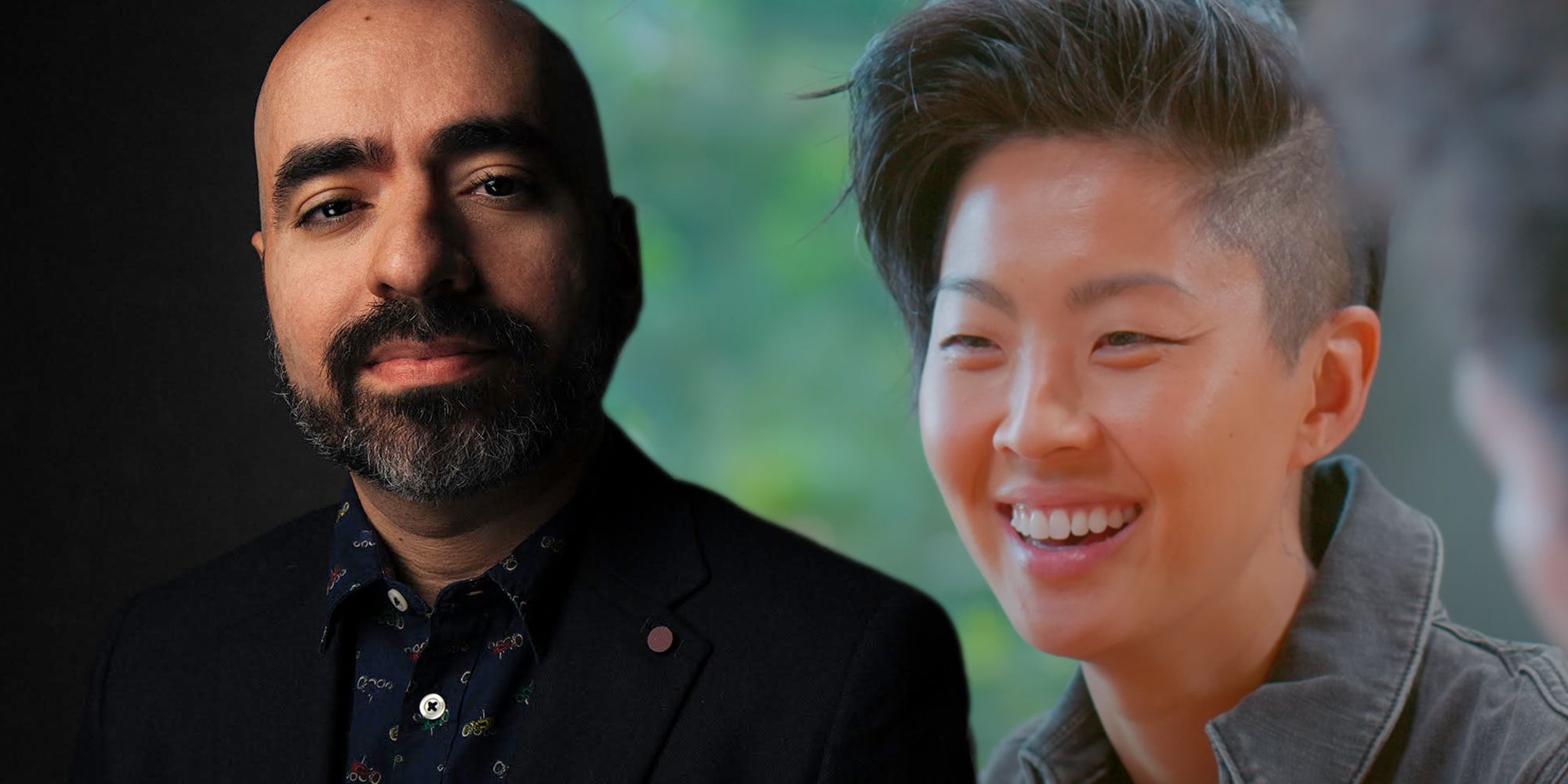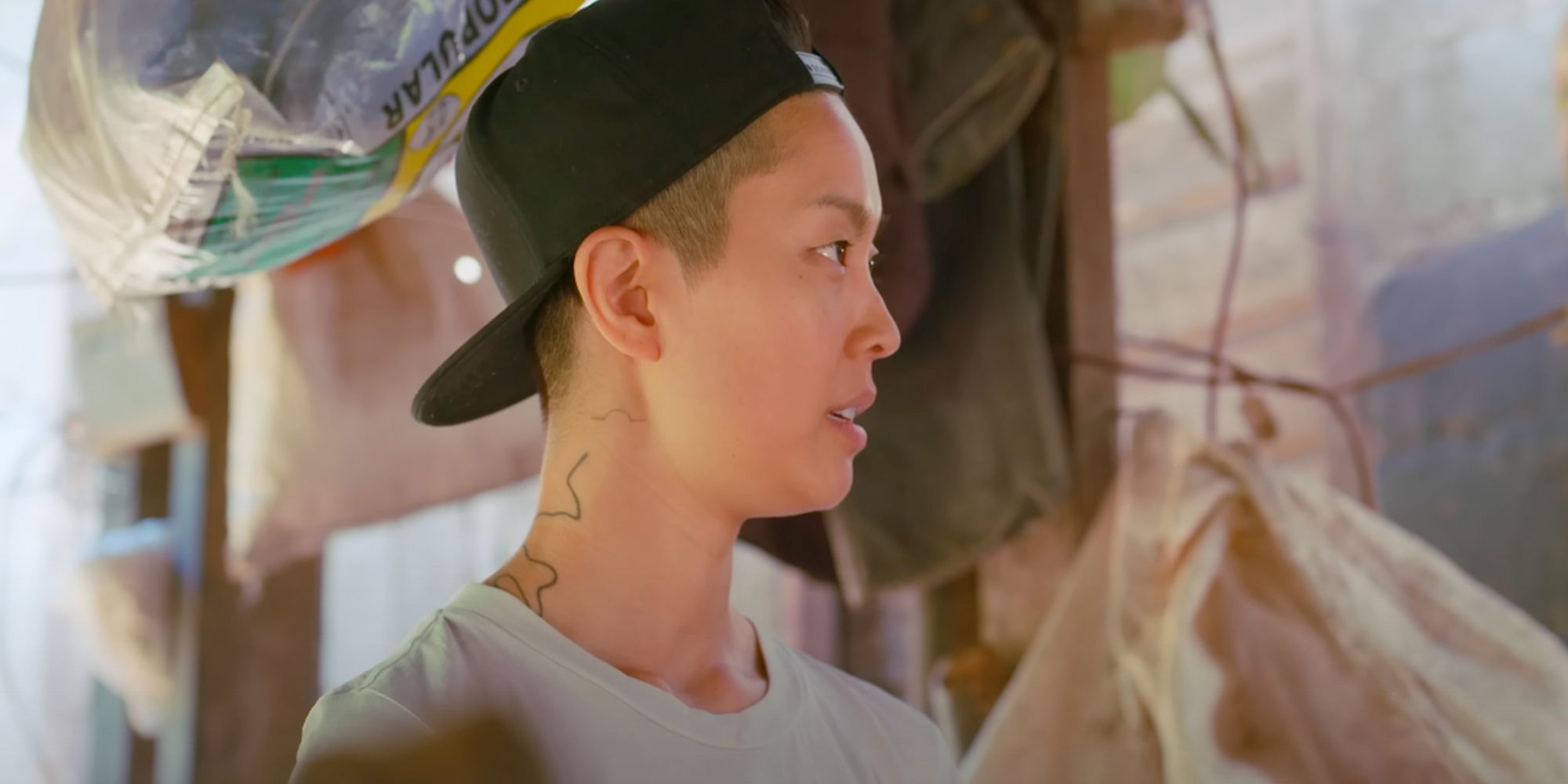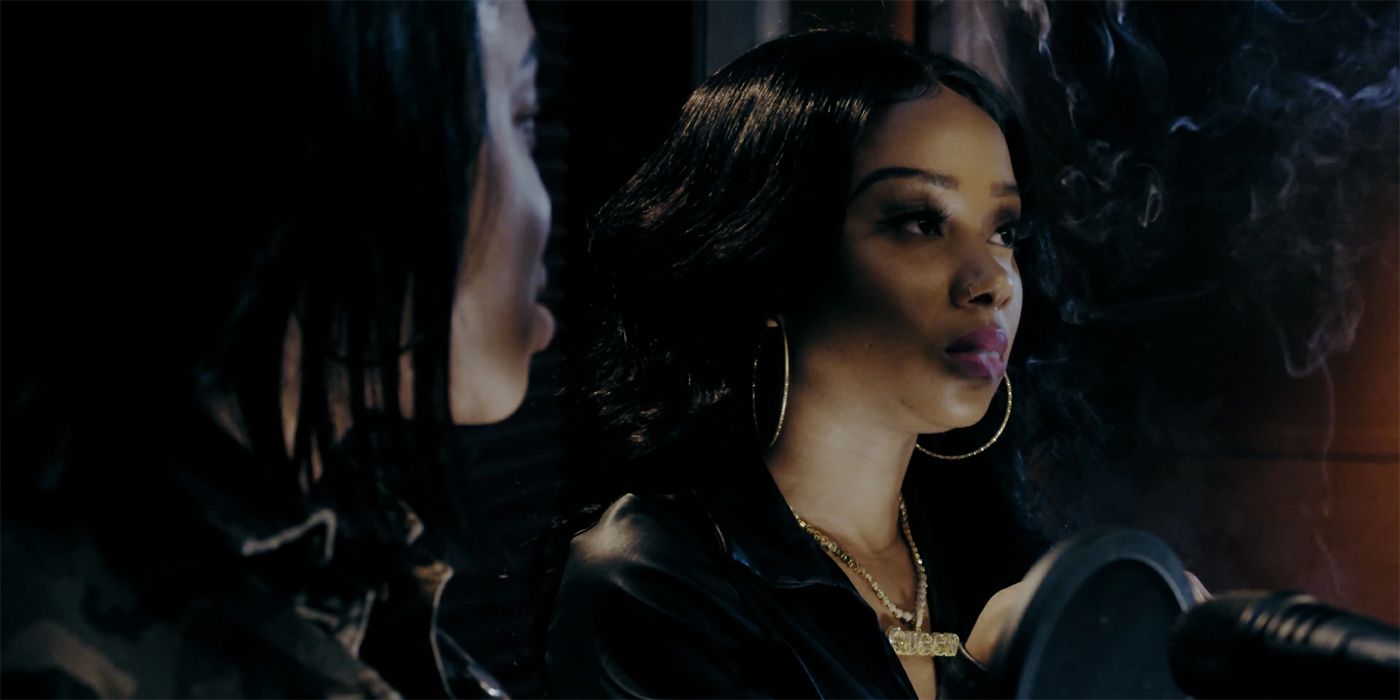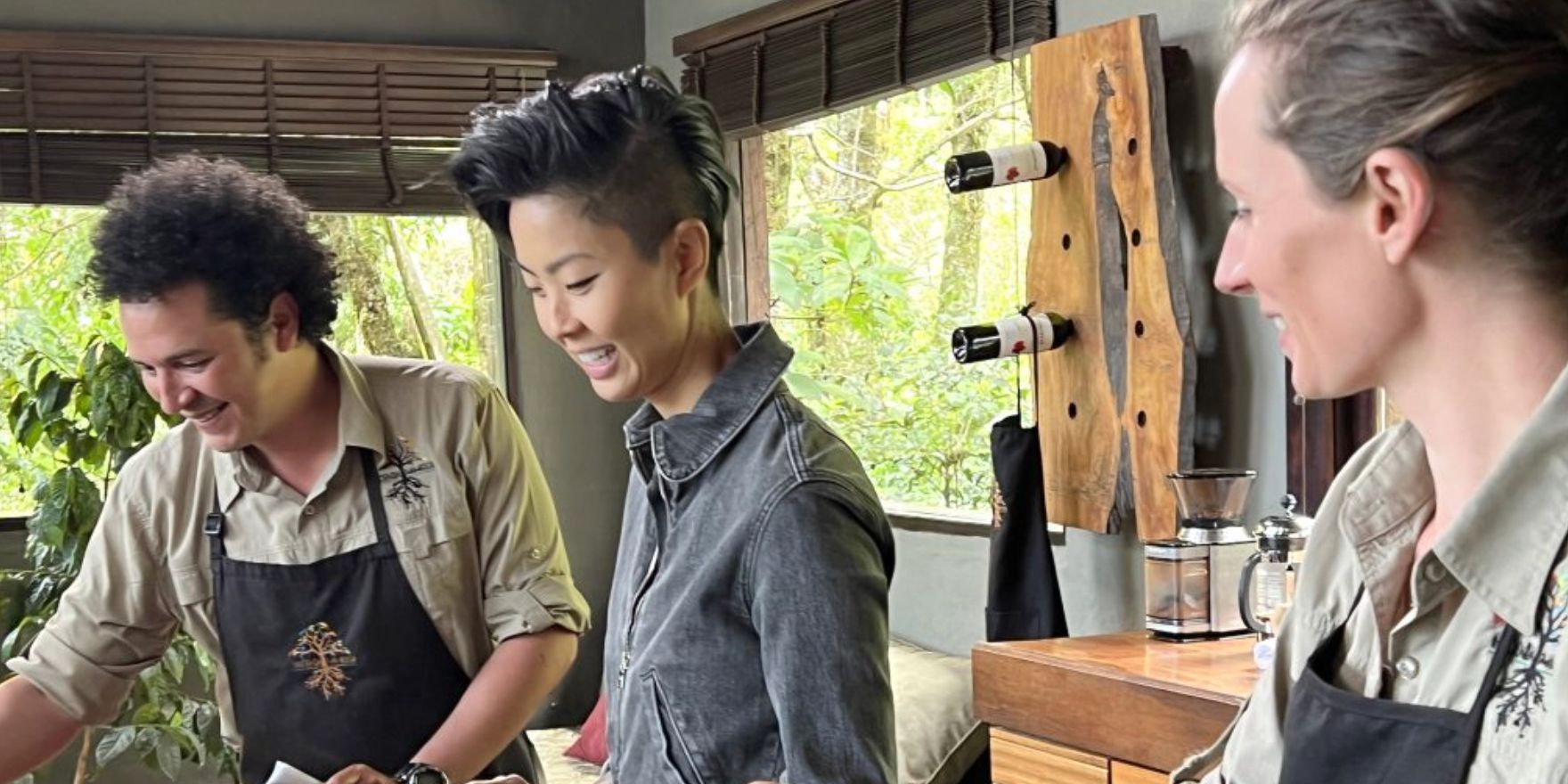Restaurants at the End of the World is a fascinating dive into some of the most unique dining experiences on the planet. The 4-episode series follows restaurant owner and Top Chef alum Kristen Kish as she travels to restaurants in Panama, Norway, Maine, and Brazil, meeting and assisting the local chefs as she learns about their signature cuisines. The remoteness of each restaurant also allows Restaurants at the End of the World to showcase beautiful settings, which often supply each eatery with standout local ingredients.
The diversity of experiences and styles in Restaurants at the End of the World is not only explored in food and location; the music of the series touches on each location, while still creating a soundscape that is unified across each episode. For this, viewers have co-composers Sandro Morales-Santoro and David Benjamin Steinberg to thank. Sandro Morales-Santoro also recently worked on the WE tv series Kold x Windy, which is the dramatic story of two female rappers pursuing a career as drill artists in Chicago.
Sandro Morales-Santoro spoke with Screen Rant about his path into composing, his various influences on Restaurants at the End of the World, and exploring new genres in Kold x Windy. Note: This interview has been lightly edited for length and clarity.
Sandro Morales-Santoro on Restaurants at the End of the World
You started out working with Venezuelan pop and folk. Can you describe that music, and then how that affected your approach when you went to Berklee College of Music and started getting into jazz and composition?
Sandro Morales-Santoro: I feel like in Venezuela we get a mixture of styles. It’s funny; when you go to a party you start a night listening to music that you would hear in a club, Top 40 or whatever, and then as the night progresses it goes through Merengue, which is more of a Caribbean thing, then salsa. You have to know how to dance; it’s part of the culture. If you want to go out with someone, you need to know how to dance, or that person is just going to go dance with someone else. Then, late-night, there are Afro-Caribbean drums. [It’s] either played on a stereo or actual drummers come and play, so you have to know how to dance that, which is super difficult. Where I’m going with that is that it’s mainstream to be aware and surrounded by different styles of music, some that are foreign for us, and some that are local.
I started as a drummer. It was the ’90s. I was playing Nirvana and Pearl Jam, and I had a small garage band. Then I started playing with another band where we played salsa and Merengue and other Latin styles. Then, when I started studying more formally, my professor would have me write classical-style pieces. He also played Venezuelan cuatro, which is like our national instrument, so I learned to play that. It’s sort of like a ukulele but with different tuning and a different style of playing. My teacher would have me write traditional classical music and write more traditional Venezuelan styles. I would enjoy writing that kind of music, bring it to friends that I had that could play it, and have concerts. I would try to write pieces for them and invite soloists and try to fuse those styles.
When I got to Berklee, I was like “I’m going to do film scoring. I want to be like John Williams,” but there were a million people trying to do the same and trying to be the same thing. I realized, “Okay, I’m Venezuelan. I should tap into all of this culture, and all of this stuff that I learned while I was there that makes us unique and different. I started writing arrangements of traditional Venezuelan pieces, and also trying to write original pieces in that style, but mixed with the orchestra. I sometimes would have an orchestra, but have soloists that would improvise, jazz-style. It was pretty cool and we had a bit of a following. I had a few concerts around town, and especially at Berklee at the Berklee Performance Center. It was a lot of fun, and a great way to bring back all of that stuff that I learned back home and try to showcase it.
You just did two shows, Kold x Windy and Restaurants at the End of the World. Based on your history, did you feel that one of them was more in your wheelhouse?
Sandro Morales-Santoro: Restaurants at the End of the World, because of the world part of it. It’s four episodes. One of them is in Brazil. Brazilian music is very different from the rest of South America, but we are close enough in Venezuela and we are aware of it enough that it’s just part of my culture in a way. Then the first episode is in Panama, and Panamanian music is very close to Venezuelan music.
Also, I have a co-composer on that show, David Benjamin Steinberg, who I’ve worked with and who has been a friend of mine for the 13 years that I’ve been here in LA. He also has a Panamanian background. Luckily we had the liberty from Jeremy Simmons, the director and showrunner, to just be ourselves, and not be attached to the idea of being super-authentic to Panama. We were just trying to write music that was appropriate for Panama, but also bring in a bit of ourselves, so we’ll have stuff that feels very Panamanian, but then we’ll have an electric guitar or drum set. I have some pieces that are like a fusion of Venezuelan traditional music with Panamanian music, or maybe something that’s very Panamanian but that has like a Venezuelan cuatro that I play, or a ronroco from the Andes.
Kold x Windy is more of a hip-hop score which, if I had had that opportunity when I first got to LA, I wouldn’t have been able to do it. I like hip hop, of course, but I hadn’t written anything in that style when I first got to LA. 13 years in LA, you go through everything. I’ve worked on all kinds of old genres from big orchestral to synthesizers and beats. Luckily, Kold x Windy was an opportunity that came at the right moment where I felt like I was able to tap into my past experience here in LA and be able to deliver a score.
Also, the good thing about that project is that there was already a sound in place. The main characters in Kold x Windy are singers, and they sing in this trap style from Chicago that’s called drill. There were songs already and there were beats for certain things, and it was more about listening to all of that work that was already in place, and then trying to make a dramatic score based on the style and the sensibilities and the overall look, sound, and concept of the show.
For Restaurants, you mentioned pulling instruments from different places you visit in the show. Was there anything that you’d never used before that you got to play around with?
Sandro Morales-Santoro: I can’t think of something that I would have played myself. Most of my stuff I’ll record myself; I’ll record ronroco or charango and Venezuelan cuatro, and those sorts of instruments. We did have a player that brought in more stuff, like cavaquinho from Brazil. That’s something that I had never had in a piece of music of mine.
With our percussion player, I can’t even tell you the names of the instruments because it was so much stuff. There’s this Venezuelan percussion player who’s a dear friend and also an incredible session player here in LA, Yonathan Gavidia. He recorded all kinds of stuff. He had the authentic drums from Panama and the authentic drums from Brazil, and he even found stuff from Norway for one of the episodes. So there was a bunch of stuff, now that I think about it, that I have never had in my projects. A lot of my opportunities to score end up being for drama, so Restaurants was also a nice change. It ties back to what we discussed; it’s being able to bring all of this knowledge that I acquired in Venezuela and put it in a score.
And with Kold x Windy, outside of the characters being musicians, were there other scores or albums you used as inspiration?
Sandro Morales-Santoro: Yeah, for sure. I love Kendrick Lamar, so Kendrick Lamar was a reference for sure. I researched drill music, which I wasn’t entirely familiar with before working on the show. Trap in general, I also wasn’t familiar with. In terms of scoring, I feel like, for instance, the work of Ludwig Göransson on the Creed films is a good example of having a score that’s dramatic in a classical way and yet has some elements of trap and hip-hop. He’s able to incorporate it in a way that works dramatically and works for the characters, and yet it feels familiar and works in a traditional way. But in the world of hip-hop, Kendrick Lamar would for sure be my main inspiration.
Between Restaurants at the End of the World and Kold x Windy, how different is it to compose for a documentary series compared to a narrative one?
Sandro Morales-Santoro: In a documentary-style show like Restaurants at the End of the World, there are so many ways to go about it, and it’s all up to the creators. Jeremy Simmons was the creative leader of the project, and I feel like he was very clear that he wanted stuff that was traditional in a way, but we also had the opportunity to try to match the energy of the chaps that were a part of each episode, and the places, and the locations, and also Kristen Kish, who’s the host of the show. I’ve been a fan of hers since way before I knew that I was going to work on this show. We were also trying to bring her indie, punk rock energy. In a situation or a scene that’s very much about her, you will maybe hear punk rock guitars and a drum set with a very garage sound.
For documentaries, especially this kind of documentary and the vision of our director, it’s more about bringing energy and putting people in the right mindset. It’s not so much about hitting what’s going on on-screen, but more about creating an atmosphere that is right, and that gets people excited about these places, and these restaurants, and the food, and everything. It’s also about tapping into the personalities of the characters.
In everything that’s more scripted, you come up with a general concept and you sort of stay within that concept throughout the whole score. It tends to be more of one thing, one style, and one genre of music. But then there’s the challenge of going into every scene and really custom-writing to every situation and trying to hit certain emotional or drama points to support what’s going on. There are so many ways to do that. It’s a balance. Trying not to be over the top, trying to hit the right moments, and also figuring out, “In this scene, should the music be helping to tell what’s going on, or should it tell what this character is thinking and not what they’re saying, or should it play against what’s happening to create tension?” It’s also about how far you push or not push, so you don’t get too dramatic.
Restaurants is about, like, keeping it fresh and different, and bringing new things all the time. I feel like Kold x Windy was more of a traditional, dramatic scoring experience where you have to really get into the story. Everything’s so custom, down to the frame. It’s a different challenge for sure.
Is there anything that you’re working on right now that you’re excited about?
Sandro Morales-Santoro: I’m super excited about an independent feature film that I just delivered. It’s called Shadow of the Sun, and it’s by Miguel Ferrer, a Venezuelan director. It’s funny because even though I’m Venezuelan and I have a lot of Venezuelan music collaborators, it’s pretty much my first Venezuelan feature film. It’s an exciting thing. It was shot one hundred percent in Venezuela with Venezuelan actors and a Venezuelan crew, and it’s about music, which is cool.
It’s about a guy from a small town who had a dream of being a singer and songwriter. That dream is way in the past, and yet an opportunity comes for him to try to achieve that dream again against all odds, and there are a lot of challenges that he’s living with. It’s a beautiful film. It’s premiering at LALIFF, which is the Latin American International Film Festival; it’s one of the biggest festivals in LA right now. It premieres on June 4th, I believe, at the Chinese Theater during LALIFF.
That score is more of a different thing from these two. It’s a dramatic, more pop-oriented score. We recorded with an orchestra in Budapest; it has a big string section in a lot of places, and a small quartet sound in other places. We recorded percussion here with Yonathan Gavidia, flutes with Ana Paola Rincones, and amazing vocals with Rachel Ohnsman. We had a bunch of soloists here in LA, the strings over there, piano, guitars, and Venezuelan cuatro, of course. It’s a score that I’m very proud of. We’re going to release a soundtrack next month, and I hope people can check it out.
About Restaurants at the End of the World
Restaurants at the Edge of the World follows chef and entrepreneur Kristen Kish as she travels to restaurants in remote locations to learn about the people, places, cultures, and traditions behind their cuisine.
Restaurants at the End of the World is streaming now on Disney+.




